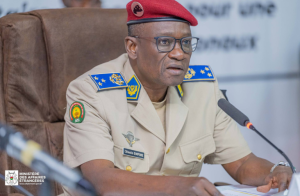Burkina Faso / WURI: Towards a unique electronic identification system for greater inclusion

Recently, the city of Bobo-Dioulasso hosted a regional awareness-raising workshop organised by the Unique Identification Programme for Regional Integration and Inclusion in West Africa (WURI). This meeting, aimed at stakeholders in the Guiriko region, sought to promote the adoption of the unique electronic identification system and to obtain the support of local authorities for a mass mobilisation around citizen registration.
This innovative system aims to provide every resident of Burkina Faso, whether living in the country or abroad, with a reliable and secure personal electronic identifier.
The objective is to guarantee official recognition of everyone’s identity, which is essential for accessing government services, social benefits and participating fully in civic life.
During the discussions, participants were informed about the advantages of the project, how the electronic ID works and the legislation governing its implementation.
Arsène Yabré, a lawyer working on the WURI project, explained that each citizen will be assigned a unique personal number, which will be recorded on an ID card. This code, combined with biometric and biographical data, will ensure the uniqueness of each individual in all national databases, preventing identity theft or duplication.
He emphasised that this innovation does not replace existing identification systems (national identity cards, passports, etc.), but complements them by ensuring more reliable and universal identification.
He also reassured the audience that all data collected will be hosted in Burkina Faso, thus ensuring national sovereignty over sensitive information.
Speaking at the event, Minister for Digital Transition Aminata Zerbo highlighted the strategic importance of this project in modernising public administration.
According to her, accurate demographic data is crucial for designing effective development policies. This system is therefore in line with the government’s desire to accelerate the country’s digital transformation.
Finally, she invited local authorities to become relays for this initiative in order to successfully complete the next stage, which will consist of mass enrolment of citizens.
Maurice K. ZONGO






